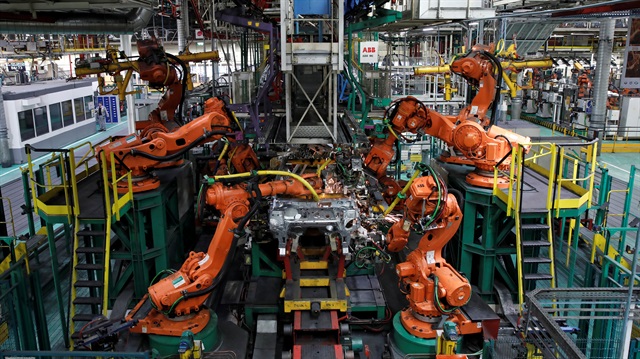
Robots are replacing American workers and significantly slashing wages, according to a report Tuesday.
Researchers behind the survey examined decades of employment data released by the government from 1990 to 2007. They found that for every new robot installed at a factory, the jobs of 6.2 people were eliminated, on average.
In addition, economists found that for every robot added per 1,000 workers, all wages were reduced between 0.25 and 0.5 percent in that surrounding area.
Automation, the report contends, effects nearly everyone in the labor force, not just manual laborers who are in positions that do not need a college degree.
The report was published by the National Bureau of Economic Research, a non-profit research organization. It was authored by economists Daron Acemoglu of the Massachusetts Institute of Technology and Pascual Restrepo of Boston University.
“We see negative effects of robots on essentially all occupations, with the exception of managers," the pair wrote in the paper. “Predictably, the major categories experiencing substantial declines are routine manual occupations, blue-collar workers, operators and assembly workers, and machinists and transport workers."
The authors wanted to focus mainly on automation so they adjusted the research to account for other developments that effected jobs, such as inexpensive imports from China and the decline of “routine jobs" that require repetition of a narrow skill set.
The report believes the future could be even worse.
Acemoglu and Restrepo argue that the number of robots utilized by U.S. industry is relatively low. If automation continues at its current pace, the economic effects could be compounded.
“If the spread of robots proceeds as expected by experts over the next two decades, the future aggregate implications of the spread of robots could be much more sizable," they said.














